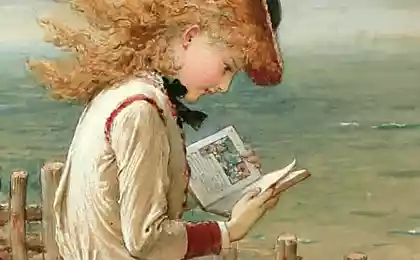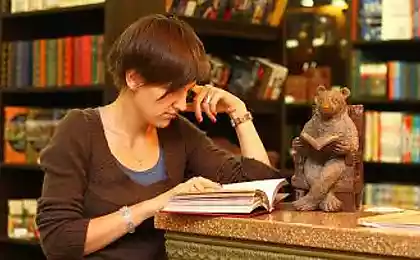Book - one man, or how reading fiction makes you better

Ask humanities scholars about the benefits of reading fiction books, and they will tell you so much nonsense that you get confused. Ask any other man, and he will look at you in bewilderment. But reading fiction really improves the quality of life, and that there is scientific evidence.
1. Reading develops empatiyu

Regarding the influence of literature on empathy many studies. Studies in neuroscience indicate that while reading activates the same areas of the brain, as in the real adventure.
The writer Annie Murphy Paul explains it this way:

"Recent research in cognitive science, psychology and neuroscience have shown that a slow thoughtful reading exciting, rich in detailed descriptions of the emotional states of the hero of the book - it is a special experience. This experience does not get from the dry facts.
When everything a person's attention is focused on the book, the brain processes the details, allusions and metaphors of the text. He mentally recreates the picture, "trying on" what is going on, and activated the same brain regions that are involved would be if the events occurred in real life ».
blockquote> Fiction may eventually change the social values of the person. It allows the reader to be interested in other people and understand what they think, what they live. On this subject, I spoke excellent writer David Foster Wallace:
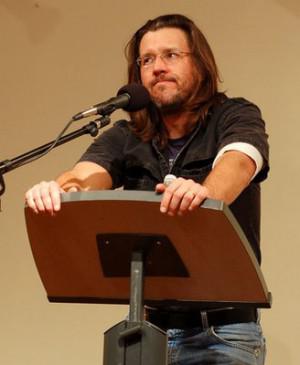
"In the real world, we all suffer from loneliness. Genuine empathy occurs extremely rarely. But if the work of art allows us to put ourselves in the place of the character, to understand his pain, it will be easier to put yourself on the place of a real person. We become less lonely. That's so easy ».
blockquote> 2. Fiction teaches us that change neizbezhny
If you like science fiction, you probably read about countless fictional gadgets and ideas that were realized in the last few years. Science fiction prepares us for the future and works as a kind of testing ground for any thought experiments.
Writer Eileen Gunn suggests that science fiction helps us to make change in the world:

"Science fiction, especially books about the future, helping people to understand that things are changing and we have to live with these changes. It is changing the world. Probably, it is much faster than 400-500 years ago, especially in some countries. Like ten years ago, said William Gibson, "The future is already here, but not everywhere yet." And it is "not always" is particularly interesting: in some parts of the world, changes are slow, and people live as well as their parents lived. They have older technologies and private infrastructure (for example, telephone wires), so they can not grow faster than those who have it all ».
blockquote> Of course, to make changes not only teaches science fiction. The same task is performed by children's literature, and even the simplest stories are filled with the quick change of events. Heroes win, lose, learn lessons and face new situations. When we read, then unconsciously we imagine that would make this place, in real life, we no longer have to frantically think, how to respond to such events.
If we know only the bare facts, we distance ourselves from the events, they pass us by. Good history is much more effective. A marketing professor at Stanford Jennifer Oker believes that people remember stories and stories much better than bare facts. And it helps us unconsciously prepare for any new situations.
3. Fiction awakens lyuboznatelnost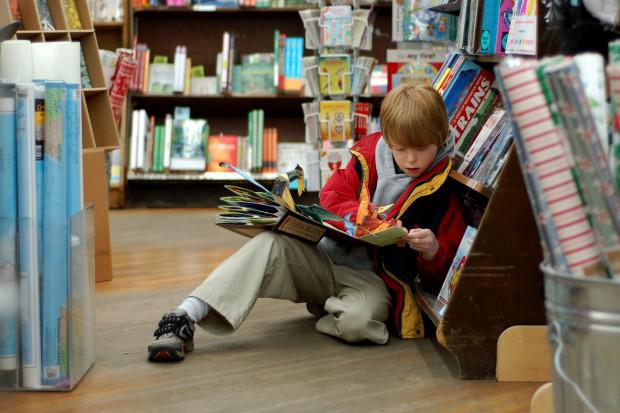
Curiosity - one of the most important components of learning. When you something interesting, you try to find out about it all that is possible. As it turned out, the book develops curiosity.
He says neuroscientist and blogger, cook Darya Pino:

"I was fascinated and fell in love with Spanish cuisine Spanish tapas and red wines after reading the novel Hemingway (Hemingway)" The Sun Also Rises. " Perhaps that is why I love Spanish cuisine. The book "The Last Chinese Chef" made me wander through Chinatown in search of the best duck dumplings and Peking. But before reading the book I did not like Chinese food ».
blockquote> This view supports published in the journal «Creativity Research Journal» Study: Literature opens the mind to new ideas. Books are unusual in the usual, and this, in turn, arouses curiosity.
4. Reading makes you a good rasskazchikom
We all tell stories, using them we experience the world. In most cases, it is through stories people share their own experiences. Reading fiction increases vocabulary that helps to be a good storyteller. Here he writes about this magazine «The Atlantic»:
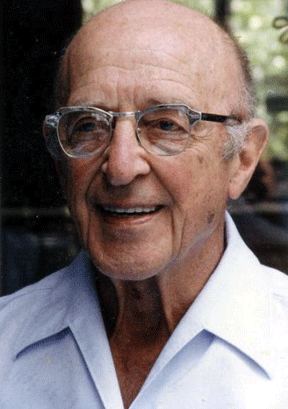
"Istoriipozvolyayut people to see patterns where chaos reigns, that is where everything seems to be subject to the occasion. People see the stories, even where they are not, because they envelop the meaning of our life in existential form and thereby help to solve the problem.
In 1944 Fritz Heider and Marianne Simmel conducted research at Smith College. They showed the 34th student short film, in which the screen moved two triangles and a circle and a rectangle side has been fixed. When students were asked what they saw, 33 out of 34 people "humanize" the figures: a circle called "restless", a small triangle - "naive" big triangle - "furious and frustrated." Only one student said he saw a figure on the screen ».
blockquote> The more you read other people's stories, the better will tell their. You will learn to filter out unnecessary information and better serve the right. The fun will be your story, the more fun you'll appear to others, the more convincing for them to be your words. Talk to humans naturally, but not all do it well. The book is in this respect - the best helper.
via factroom.ru














